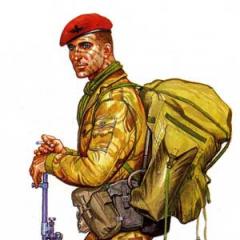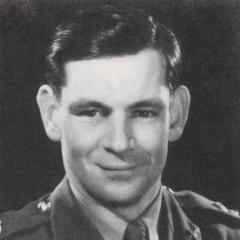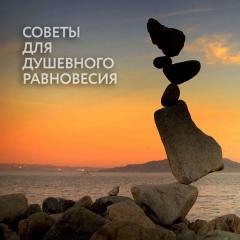He loved. Anna Akhmatova
He loved three things in the world:
Over the evening singing, white peacocks
And the erased maps of America.
Didn't like when children cry
Didn't like tea with raspberries
And female hysteria
... And I was his wife.
Analysis of the poem "He loved three things in the world" by Akhmatova
The work "He loved three things in the world" by Anna Andreevna Akhmatova was included in the collection "Evening".
The poem dates from November 1910. During this period, the young poetess is in Kiev. In the spring she married N. Gumilyov, together they spent several months in Paris. In September he went to Africa for four months. She lived for some time in her husband's family, briefly went to Kiev to visit relatives, wrote a lot - and doubted whether to continue? At the same time, rumors about her husband's hobbies more and more often reached her. Is it all in the past? What will their married life be like? Genre - love lyrics, and also - a portrait of N. Gumilyov in the refraction of perception by A. Akhmatova. The rhythm is uninhibited, the rhyme is whimsical, the final line is left without rhyme. "Three things in the world": a roll call with the favorite writer of youth, poet K. Hamsun. "Singing in the Evening": quite a biographical detail. She herself was a believer, however, having gone through various stages of doubts and delusions during her life. Perhaps the general bitter irony of the verse in this line indicates that the hero attended services in to a greater extent because of the beauty of the choir singing. "White peacocks": a very rare animal. The author emphasizes the exoticism (a little funny, apparently) of the hero's tastes. "Blurred Cards": from constant unfolding. "America": its image sometimes appears in the poetry of N. Gumilyov. The technique of parallelism allows the author to reveal in such a short poem the “things” that the hero does not like. Among them - children's crying (a roll call with the poems of I. Annensky, who wrote that he loves children and is ready to wake up from their crying in the middle of the night. This poet was highly appreciated by N. Gumilyov). At this time they did not yet have their children. However, here again it is said a little about something else: the hero is burdened by everyday life, earthly life in a down-to-earth, not romantic version. "Tea with raspberries": cozy family evenings tend to quickly become boring. "Women's hysteria": here is self-criticism, and the point of view of the poet himself, apparently once expressed to his wife. "Was his wife": It seems to be about complete incompatibility. However, it would be a mistake to think that there are two separate portraits, and not a gallery of sometimes illusory images of people about each other. Indeed, it is difficult to say how much she herself loved crying children and nervous women. It seems that one can only vouch for tea. However, again these are lyrical masks. In the past tense she talks about this marriage and as if asks the reader to judge whether the heroes had a chance for happiness, who is to blame, and whose fault is greater.
Love miniature A. Akhmatova "He loved three things in the world" - a kaleidoscope of apt details, murderous irony and doubt.
It is impossible to read the verse "He loved" by Anna Andreevna Akhmatova without thinking about who it is dedicated to. From the first line you can see what the poet writes about the personal, about the patient, about what he cannot remain indifferent to. Anna Andreevna wrote this work in 1910. The reason for such a cry from the heart was the departure of Gumilyov, Akhmatova's spouse, to Africa for 4 months. The poetess's notes about this time are filled with loneliness and longing. But, at the same time, she noted that this event had a good impact on her work. It is not surprising, because the torment of love, poured out on paper, is easier to endure.
The text of Akhmatova's poem "He loved" is a kind of description of a certain type of people. The poetess writes about those who prefer sublime spiritual fantasies to reality and routine. In just six lines, Anna Andreevna completely described psychological picture a person whose aspirations are filled with a desire for risk and adventure, whose fear of the ordinary is unimaginable and unchanging. The whole meaning and motive of the poem is completely determined by the last line. “... And I was his wife,” writes Akhmatova. And there is so much bitterness in these words, so much suffering. It's so difficult to live with someone for whom life with you is a prison. Undoubtedly, such small masterpieces of Russian literature should be taught in high school lessons.
On three things he looked with favor:
Vespers singing, white peacocks and faded
Worn-out America maps;
He disliked weeps at kids' misbehavior,
To have jam at his tea, and he hated
Female frenzied screaming habdabs
... And I occurred to be his wife.
Original text:
He loved three things in the world
Over the evening singing, white peacocks
And the erased maps of America.
Didn't like when children cry
Didn't like tea with raspberries
And female hysteria
... And I was his wife.
Reviews
Thank you, Evgeniya! Of course, you can do without the transfer of rhyme and meter, but they are important, and, in my opinion, this way is closer to the original. I agree that another approach is quite possible - for example, Stanley Kunitz with Max Hayward was translated as follows:
Three things enchanted him:
white peacocks, evensong,
and faded maps of America.
He could "t stand bawling brats,
or raspberry jam with his tea,
or womanish hysteria.
... And he was tied to me.
All the best!
I also made a modest attempt to translate into rhyme and preserve the size and musicality as much as possible ... My version:
By three things he was gratified:
Evening prayer singing, white-feathered peacocks,
And faded maps of America.
He disliked it when children cried,
And women getting hysterical.
... And I was married to the man.
I like it! Especially the fact that the dactylic rhyme has been preserved. In general, Akhmatova here everything is "not strict", as if by the way - there is no purpose to give some kind of analysis of the relationship: just a statement of what took place (he was, as it were, an incorrigible "romantic out of this world", but about a speaker it is not known, except for a completely neutral "and I was his wife.) Ideally, it would be good to convey this" time-honored "relaxed calmness - maybe I'll think about how to improve my own version. look, for such a relaxed story: after all, "three things in the world" do not make up an exhaustive list at all, what "he" loved (and what he did not love) is an emotional
exaggeration for a short and capacious characterization of a person.
Berry jam served with his teacup,
... And I was married to the man. - from the point of view of the language, everything is in order (as, for example, this country in the meaning of "my country"), but, as it seems to me, it is still better to keep the pronoun - something more emotional is hidden behind it - it is not in vain that this fact is reported separate from the general storytelling in a conversational style. Happy New Year!
Many thanks!! Your analysis is very consonant to me, I agree about the pronoun. It is purely rhythmically important for me to convey the sound, so I will continue to search. Happy New Year and you, all the best in the New Year!
The daily audience of the Poetry.ru portal is about 200 thousand visitors, who in total view more than two million pages according to the traffic counter, which is located to the right of this text. Each column contains two numbers: the number of views and the number of visitors.
Suddenly, I got an analysis of Akhmatova's poem. This one:
He loved three things in the world:
Over the evening singing, white peacocks
And the erased maps of America.
Didn't like when children cry
Didn't like tea with raspberries
And female hysteria.
... And I was his wife.
berendeishche
said that Anna Andreevna knew how to create an unattractive image out of ordinary things and attributed this to the female secret that she possessed. Oh yeah. The poem was written six months (!) After the wedding. Presumably, during this time she learned more than enough about her husband.
But let's better talk about the language tools that Akhmatova uses. I was always amazed by the first line: "He loved three things in the world." It's hard to argue that the lyric hero loved just this, however, it can be assumed that exactly this he loved most of all... What are these things? "For evening singing, white peacocks / And erased maps of America." We can say that the lyrical hero is the original, if this is what he loves most of all. And, apparently, not too much of a life-lover. White peacocks are not so common, even in zoos. Maps of America, too, can hardly be a daily joy if the hero does not specialize in them.
When it is said that the hero did not love, the phrase is constructed in such a way that he could by no means not love just this, and very much more. But we are told that "I didn’t like it when children cry, / I didn’t like tea with raspberries / And female tantrums." berendeishche
noticed that either sadists or doctors can love children's crying and female tantrums. To some extent, this is true, but not loving women's crying and children's tears, you can somehow solve the problems that have arisen, console a woman or a child. About a person who comforts a child or actively tries to help him when he cries, one can hardly say that he "did not like when children cry." Because a person copes with the problem that has arisen. No one likes problems, but when they say about someone that he "did not like problems", it usually means that the person preferred not to deal with them, but to avoid them. In addition, note that the list of favorite things does not include children's laughter or women's smiles. It can be concluded that the hero is more likely an introvert and, perhaps, does not like people too much, in any case, their joy is not included in the things that he loves. most of all... As for tea with raspberries, it is known that this is a popular (still, by the way!) Remedy for colds. I believe that in 1910, when the poem was written, effective methods there was less struggle with it than now, so when the hero fell ill, it was more difficult to treat him. In any case, the opposition personal / public in the description of the hero is easily noticeable. It turns out that the described person is a beech and a misanthrope, and does not take an emotional part in the affairs of his family.
However, the most interesting in terms of unraveling the subtexts was the mention that the hero loved "in the evening singing". I naively assumed that this meant singing during Vespers, but just in case, I called an expert who told me that this was not singing. during Vespers, and what follows - per evening and is called Compline. In 1910, this service was the easiest to find in a monastery or a large church.
Compline is great (on special dates) and small.
"On all other days, according to the Ustav, the Little Compline must be performed, which is a significant reduction of the great. According to the Ustav, it must be performed after Vespers. On some days, the Ustav instructs that the Little Compline should be performed in private."
In the modern Russian Church, in view of the widespread practice of the directly connected service of Matins immediately after Vespers, Little Compline has de facto gone out of liturgical use, it is used only during Holy Week both in parishes and in most monasteries; sometimes it is performed as a fraternal service after the evening meal. "(hence) Compline includes the penitential psalm 50. They say that penitential psalms are especially expressive.
Sprinkle me with hyssop, and I will be clean; wash me, and I will be whiter than snow.
Let me hear joy and gladness, and the bones, broken by Thee, rejoice.
Turn Thy face away from my sins, and blot out all my iniquities.
Create a clean heart in me, O God, and renew a right spirit within me.
And the control in the head of Gumilyov as a lyrical hero - I found two marvelous parallels in the note to the poem. "The lines:" He loved three things in the world ... "," Didn't like when children cry ... "are a roll-over with the lines of I. Annensky "I love it when there are children in the house // And when they cry at night"... M.M. Kralin found an analogy with the words of Glan, the hero of the novel "Rose": "I love three things ... I love the dream of love that I dreamed once, I love you and I love this piece of land."... In her autobiographical prose, Akhmatova named K. Hamsun among the favorite writers of her youth. "
And here's another discussion in the magazine about this poem:


